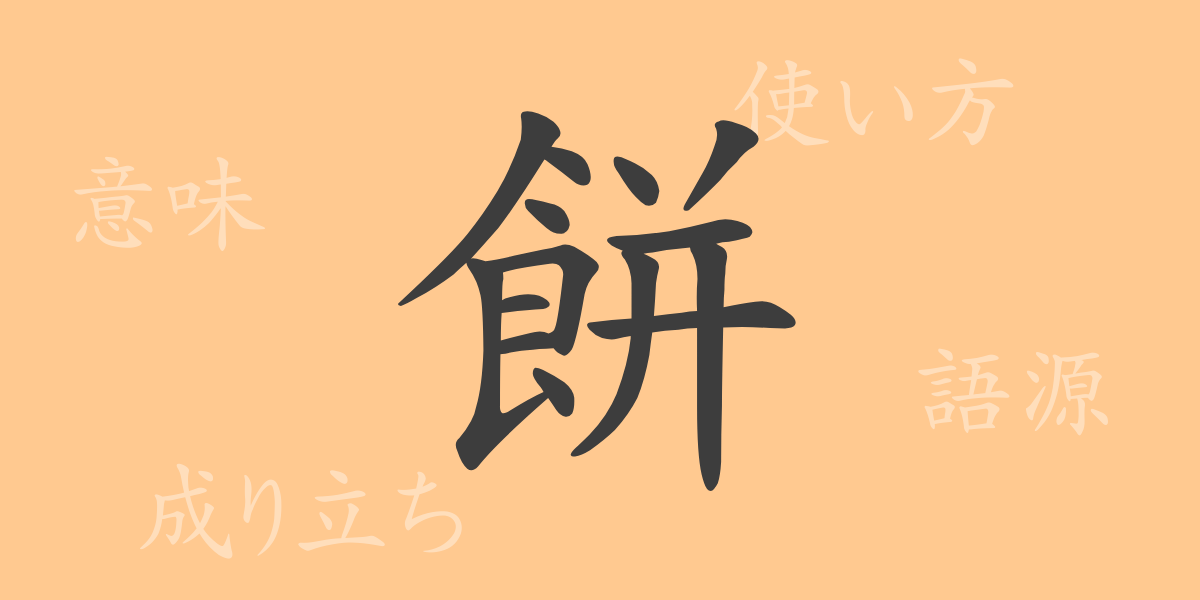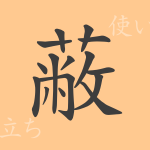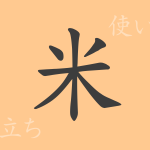The “餅” (Mochi) has been cherished in Japanese food culture for centuries. It plays an essential role not only in New Year’s celebrations but also in everyday meals. What kind of history and meaning does this food hold? In this article, we will delve into various information about Mochi, from its origins and meanings to its uses, readings, and idiomatic expressions.
The Origin of “餅” (Mochi)
The origin of “餅” (Mochi) comes from the verb “motsu” (もつ), which means “to hold” or “to carry.” In ancient Japan, offerings were brought to the gods during rituals, and this act of “bringing something to the gods” led to Mochi being treated as a sacred food. Over time, the term “mochi” (もち) evolved to refer to sticky foods in general, and today it mainly refers to steamed and pounded rice.
The Meaning and Uses of “餅” (Mochi)
“餅” (Mochi) refers to a food made primarily from steamed and pounded glutinous rice, known for its stickiness and elasticity. In Japan, Mochi is used in various occasions such as New Year’s Mochi, Ozoni (お雑煮), Kinako Mochi (きな粉餅), Yaki Mochi (焼き餅), and Kagami Mochi (鏡餅). Additionally, it is used metaphorically in expressions like “Mochi wa Mochiya” (餅は餅屋), meaning that specialized tasks should be left to professionals.
Reading, Stroke Count, and Radical of “餅” (Mochi)
The character for Mochi (餅) has features derived from its shape and sound.
- Reading: It is read as “Hei” (ヘイ) in On-yomi (音読み) and “mochi” (もち) in Kun-yomi (訓読み).
- Stroke Count: The character Mochi (餅) has a total of 15 strokes.
- Radical: The radical for Mochi (餅) is “Shoku-hen” (食へん).
Idioms and Proverbs Using “餅” (Mochi)
There are many expressions related to Mochi (もち), deeply rooted in Japanese life. For example, “Mochi wa Mochiya” (餅は餅屋) is a proverb meaning that specialized tasks are best left to experts. Another example is “Te no Uchi wo Mochi ni suru” (手の内を餅にする), which means to handle something skillfully with well-practiced techniques.
Summary of “餅” (Mochi)
Mochi (もち) has a long history as a traditional food in Japanese culture and is still beloved by many people today. From its origins to the proverbs used in daily life, Mochi is deeply ingrained in Japanese life. Thus, it is not just a food but also a symbol of Japanese culture and language.

























